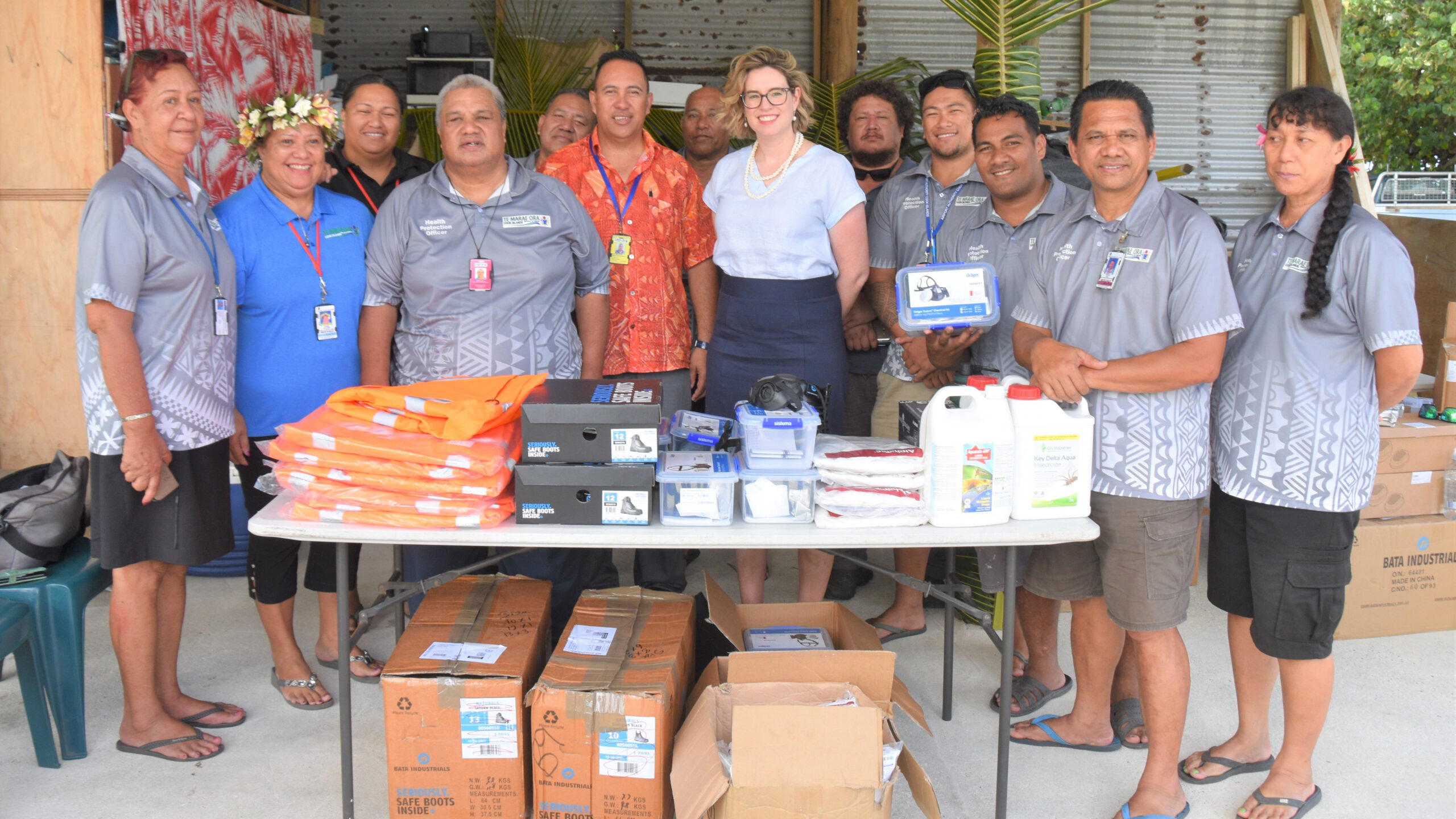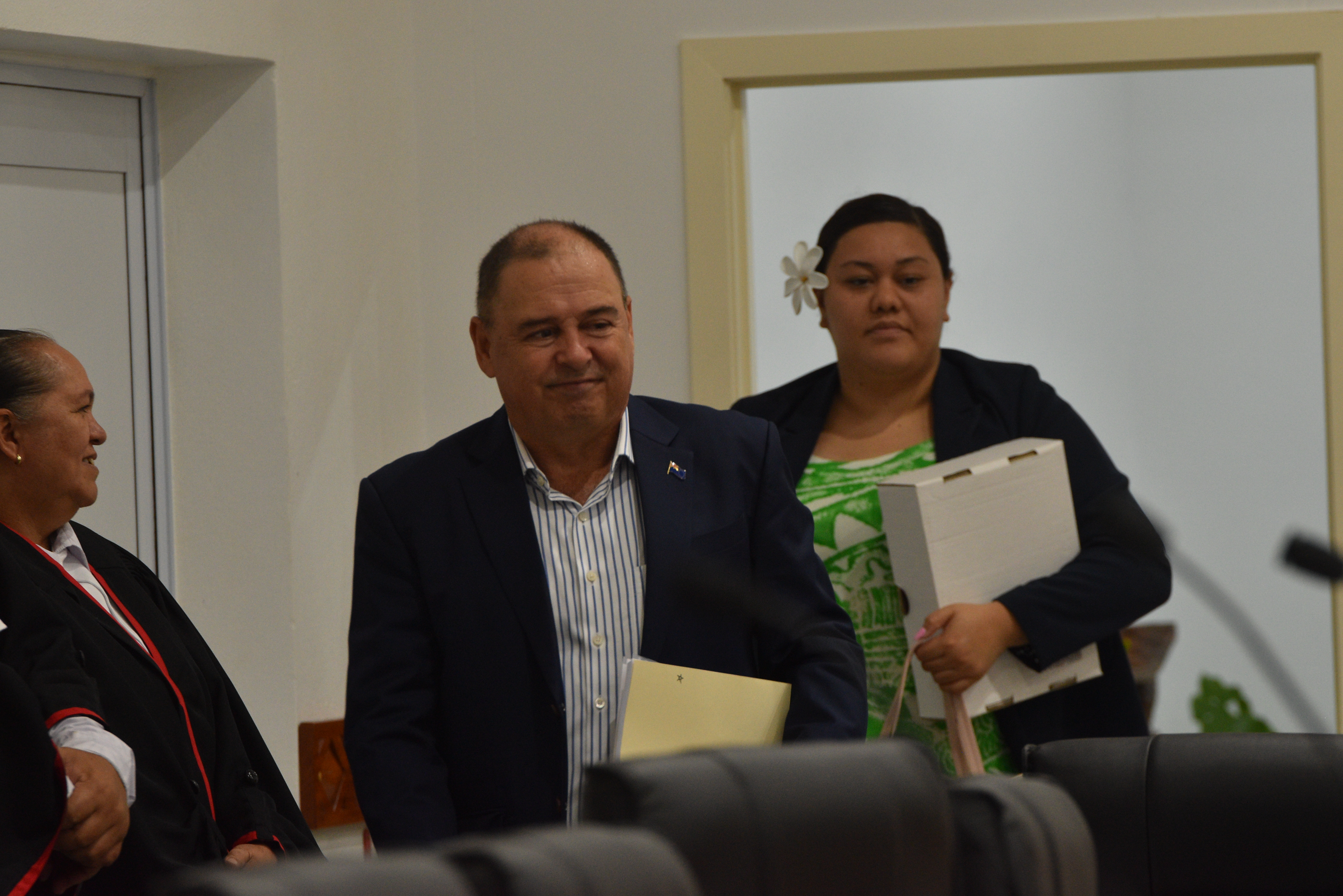Personal Protective Equipment to combat dengue
Wednesday 22 December 2021 | Written by CI News Staff | Published in Health, National

The Acting Australian High Commissioner to the Cook Islands, Jane Edquist hands over PPE gear to Te Marae Ora Secretary of Health, Bob Williams and Public Health staff. 21122102
Te Marae Ora’s Public Health department are pleased to have received gear to assist the combat of dengue next year.
With support of the World Health Organisation and Australia, at a cost of NZ $44,004.11, Personal Protective Equipment, commonly referred to as PPE was officially handed over to Public Health last week by the Acting Australian High Commissioner to the Cook Islands, Jane Edquist.
Secretary of Health Bob Williams in receiving the supplies said, “for two years in row we have gone through a dengue outbreak, these resources will help us in our preparatory planning for the coming year as the prediction is that we may have a dengue outbreak in 2022.
“So we are preparing for that time, and our protection officers will be prepared.”
For the Cook Islands, dengue is the most prevalent mosquito borne disease, it usually occurs from October through to March.
Te Marae Ora has been in discussions with the world mosquito programme- the Pacific Mosquito Surveillance Strengthening for Impact (PacMOSSI) in partnership between the Pacific Island countries, including the Cook Islands and 112 international institutions, who work to support effective vector surveillance and control in participating countries.
According to Williams, a project is scheduled to start in February next year that will see the introduction of mosquitos that will combat the spread of dengue, that is already available in Tahiti.
It will be a first for the Cook Islands.
“The programme will run for about a year and this will help us reduce dengue outbreaks for the future,” said Williams.
Supervisor of the Public Health Vector Control Unit, Charlie Ave said, “In our past dengue outbreaks, our consumables were reduced, so we applied to WHO for assistance to replenish our supply.”
Ave explained that Vector Control - any method to limit or eradicate mammals, birds, insects which transmit disease pathogens - should be adapted to local disease transmission situations; and the most frequent type of vector control is mosquito control using a variety of strategies.
“To prepare for the likely event of an outbreak of dengue we must have resources available to protect our staff and also for maintenance.
“And to be effective, a plan for surveying and controlling the mosquitos needs to align with best practices and implemented by well trained staff with sufficient equipment and resources,” Ave said
Led by the WHO and James Cook University with funding from the Australian Department of Foreign Affairs and Trade (DFAT), the donated equipment includes goggles, masks, overalls, jackets, boots, a quantity of pesticide, supplied by Key Industries Mairangi Bay Auckland.





























